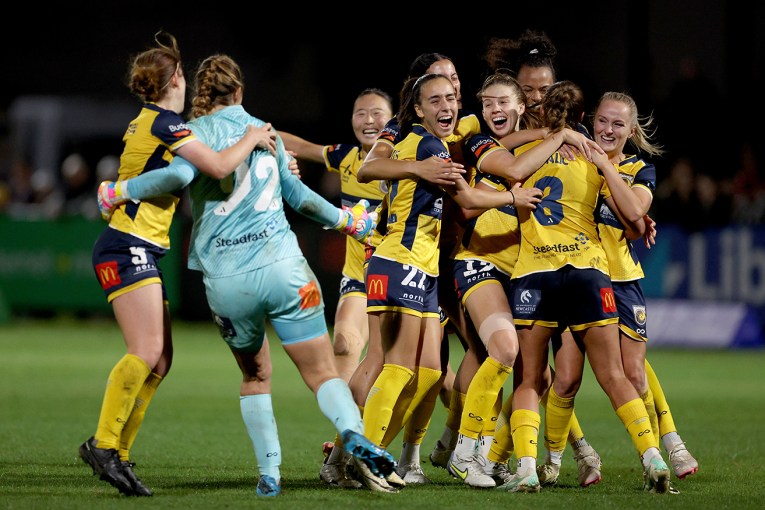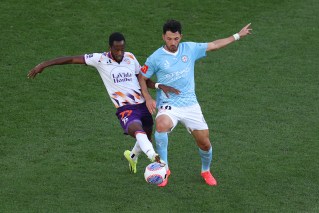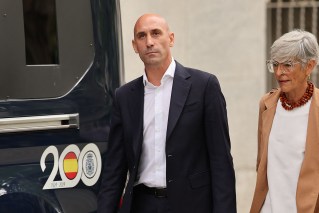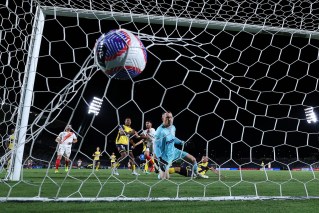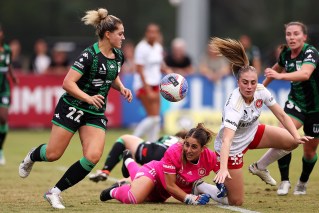Blatter’s back, FIFA in turmoil
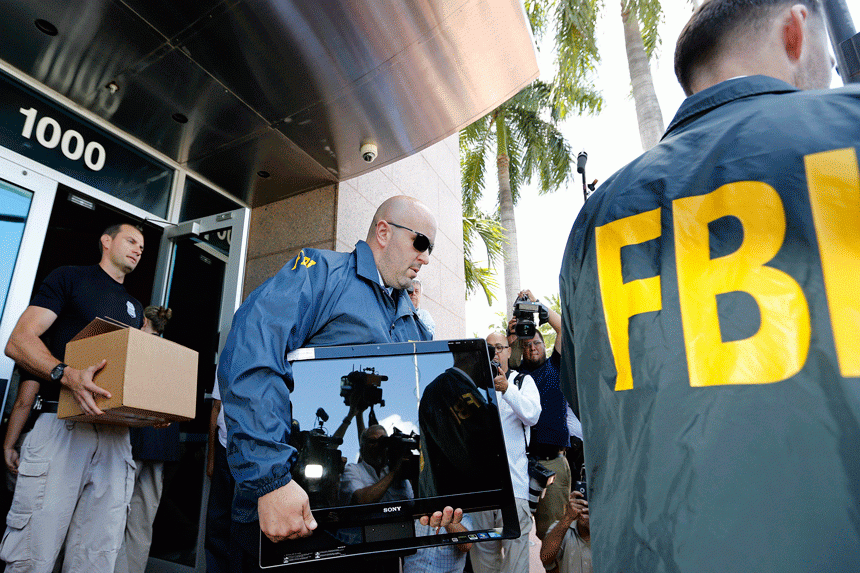
The FBI trawled intelligence records without legal authority, the court has ruled. Photo: AP
Embattled FIFA president Sepp Blatter has been re-elected as leader of the governing body at its global congress in Zurich, as a corruption scandal engulfs the game.
Blatter secured 133 votes which fell short of the two-third majority required to get him re-elected, prompting a second round of voting. However, his challenger Prince Ali bin al-Hussein of Jordan, who won 73 votes in the first round, withdrew from the race after he conceded defeat.
US investigators and their Swiss counterparts are eager to prove what the soccer world has long believed: that massive payoffs to FIFA executive committee members may have led to the awarding of the next two World Cups.
• Top FIFA officials arrested in Zurich
• What is next in the FIFA corruption saga?
• Blatter refuses to quit as FIFA boss
The Swiss prosecutor’s office said in a statement: “It is suspected that irregularities occurred in the allocation of the FIFA World Cups of 2018 and 2022” that involved “unjust enrichment”.
Russian President Vladimir Putin reacted furiously, suggesting the corruption probe is a political witch hunt to punish embattled FIFA President Sepp Blatter for awarding the cup to the country.
Indeed, Blatter and his FIFA cronies, who have run world football as a personal cash machine since the 1970s, appear to be betting they’ll wriggle off the hook this time, just as they have every other time in the past.
After the arrests, Mr Blatter was elected to another term at a FIFA meeting.
“I have no doubts at all that this is a clear attempt to prevent Blatter’s re-election as president of FIFA, which is a flagrant violation of the working principles of international organisations,” Mr Putin told reporters.
“Our American partners are using such methods to reach their own selfish goals and are doing it illegally, persecuting people.”
Watch the video to see Putin’s response to the allegations:
Russia’s World Cup is probably in the clear.
It is alleged that votes were purchased in Russia’s successful 2018 World Cup bid over England.
In 2012, FIFA hired former US prosecutor Michael Garcia to carry out an investigation of possible corruption surrounding the successful Russian and Qatari bids. In 2014, FIFA banned Mr Garcia’s full report from publication and released a summary that exonerated Qatar and Russia.
Mr Garcia called the summary a misleading whitewash and quit. He complained of “numerous materially incomplete and erroneous representations of facts and conclusions” in the Blatter-approved summary.
But at least in the case of Russia, the weather is cool enough in the summer and the country has a strong tradition in the game and reasonable infrastructure. The World Cup is just three years away, making alternatives much less likely.

FIFA president Sepp Blatter awards the 2022 World Cup to Qatar. Photo: Getty
The road to Qatar
Qatar 2022 is far more contentious as a host nation.
The World Cup is traditionally played in the northern hemisphere summer to accommodate the wealthy European professional leagues, where the bulk of the globe’s top players ply their trade.
Summer temperatures in Qatar top 120 degrees Fahrenheit (48.9°C) – dangerous for players, and even more dangerous for the migrant labourers now working to build football stadiums.
At the time of Qatar’s bid, the country only had three of the 12 stadiums required.
Labour conditions for the temporary workers the country relies on, most from the Indian subcontinent, are brutal. Workers can have their passports confiscated by their employers when they arrive in the country and can also find themselves paid far less than they were promised.
The International Trade Union Confederation estimates 1200 workers have died building World Cup venues so far, and predicts the number will top 5000 by 2022.
By comparison, 10 people died on construction sites for Brazil’s 2014 World Cup and two died building facilities for South Africa’s 2010 World Cup.
There are other reasons that make Qatar a less than salubrious place for the event. The country does not have a free press. Engaging in gay sex can lead to prison terms, and drinking alcohol in public is also illegal.
During Qatar’s bid, Blatter said he believed its claim that it could build nine massive, fully air-conditioned stadiums (the experts were skeptical; the experts were right) and insisted he wouldn’t try to move the tournament to the winter (which he is now trying to do).

An artists impression of an air-conditioned World Cup stadium in Qatar. Photo: Getty
That effort is enormously disruptive to powerful European clubs like Barcelona in Spain and Chelsea in the UK.
Qatar made so little sense at the time that backhanded payments to the ExCo were alleged. On top of everything else, Qatar – whose population of 2 million includes only 300,000 Qatari citizens – has never qualified for a World Cup.
None of this deterred Blatter and his fellow FIFA chieftains. Why? One suspected reason is the interventions of Qatari tycoon Mohamed Bin Hammam, a member of the ExCo when the World Cup was awarded. He was later found to have spent $5 million buying votes for the World Cup.
Though he was kicked out of FIFA, officials within the organisation have insisted that the bribery he was engaged in had nothing to do with the World Cup. They say his money was all about rigging a different internal vote at FIFA and so was not relevant.
Potential backlash
The future of the Qatar World Cup is now very much in play.
European clubs were already furious about the ‘bait-and-switch’ played with its scheduling, since FIFA rules require them to release their players for the competition, even if it’s mid-season.
Credit card giant Visa says it is already considering pulling its World Cup sponsorship. Sponsor Coca Cola said “this lengthy controversy has tarnished the mission and ideals of the FIFA World Cup.” Adidas has also expressed concern.

A football fan protests against Sepp Blatter, with another dressed up as the FIFA president. Photo: Getty
Meanwhile, Blatter appears to be sticking to his guns.
In Zurich, former player and current head of the European football federation (UEFA) Michel Platini, told reporters that during a private meeting he begged Blatter to stand down, but he was rebuffed.
He went on: “If Mr Blatter wins, UEFA will meet in Berlin to discuss the future of our relations with FIFA.”
FIFA elections have generally been more like coronations under Blatter and his mentor and predecessor, Joao Havelange. That’s why Blatter’s only opponent at the moment is a Jordanian prince.
Sure, there was outrage over his handing the 2022 World Cup to Qatar, but opposing “King Sepp” was seen as a waste of time.
Mr Platini admits that UEFA is now in a “minority” inside FIFA. While most of the sport’s billions of dollars are generated in the major European leagues – particularly England, Spain, Italy, and Germany – the national federations of the world, particularly in Asia and Africa, remain firmly on Blatter’s side.
And it’s one federation, one vote.
– Christian Science Monitor
